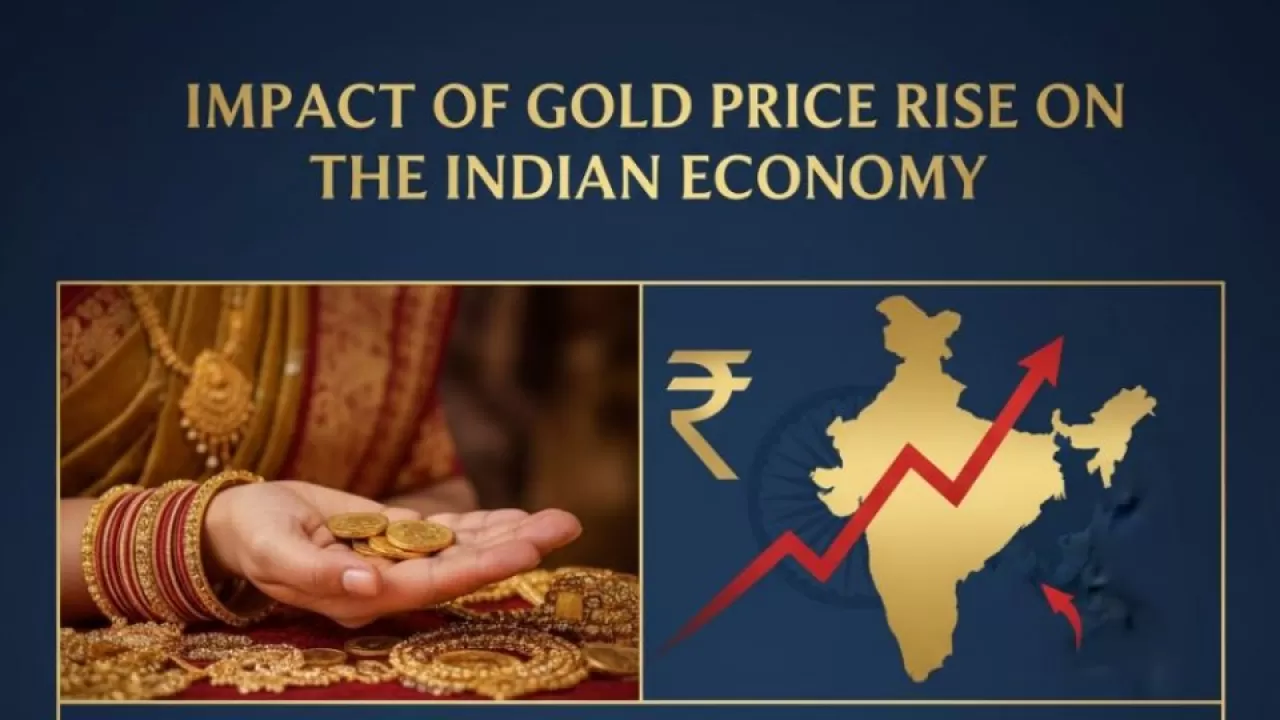Introduction: The Shine of Gold and the Rising Price
In India, gold is not just a metal, but a symbol of culture, investment, and economic stability. Over the past five years (from 2020 to 2025), gold prices have reached record levels. From an average of ₹41,275 per 10 grams in 2020, it reached ₹1,30,790 by October 2025. This increase, amounting to approximately 217%, is both a source of joy for investors and a source of concern for ordinary buyers. But the question remains: why has gold prices risen so rapidly? In this article, we will analyze the key factors in detail, examine historical trends, and look at future indicators.
Gold Price Trends Over the Last 5 Years: A Look
To understand the journey over the last 5 years, check out this updated table, which shows average annual prices (per 10 grams of 24-carat gold) in Delhi:
| Year | Average Price (₹ per 10g, Delhi) | Growth (%) | Major Events |
|---|---|---|---|
| 2020 | ₹41,275 | - | COVID-19 Pandemic |
| 2021 | ₹48,500 (approx.) | +17.5% | Economic Recovery |
| 2022 | ₹52,400 | +8.0% | Russia-Ukraine War |
| 2023 | ₹61,200 | +16.8% | Inflation & Interest Rates |
| 2024 | ₹72,500 | +18.6% | Global Uncertainty |
| 2025 (as of Oct 15) | ₹1,30,790 | +80%+ (YTD) | US Rate Cuts, Ongoing Wars |
The trend shows that prices continued to climb after 2020, with a jump of over 80% in 2025. Overall, there has been an increase of 217% in 5 years.
Reason 1: Global Inflation and Economic Uncertainty
Inflation has been a key driver of gold prices. Global inflation rates reached 7-8% between 2020-2022, leading investors to view gold as a hedge. Retail inflation in India remained above 6%, eroding the purchasing power of the rupee. Gold, a natural hedge against inflation, became attractive during this period. Also in 2025, the US Federal Reserve's interest rate cut (25 basis points) weakened the dollar, boosting gold demand.
Reason 2: Geopolitical Tensions and War
Ongoing conflicts around the world have made gold a 'safe haven' asset. The Russia-Ukraine war in 2022 pushed prices up by 8%. In 2023-2025, Israel-Hamas, Middle East tensions, and US-China trade disputes increased uncertainty. During this time, investors shifted away from equities and turned to gold. India, the second-largest importer of gold, is directly affected by these global events. According to experts, these tensions are a major reason for the 80% increase in 2025.
Reason 3: Rupee Weakness and Import Dependence
India imports more than 90% of its gold, so a rupee depreciation against the dollar directly increases prices. The rupee weakened by more than 20% in 2020-2025 (from ₹75 to ₹85+ per dollar). This was further exacerbated by the trade deficit and foreign investment outflows in 2025. The result: the cost of imported gold increased. In 2023-24, India imported gold from 48 countries, further pushing up costs.
Reason 4: Central Bank Purchases and Investment Demand
The RBI doubled its gold reserves in 2020-2025 (above 800 tonnes). Globally, central banks (including China and Russia) increased gold reserves by 1.6 times over the past 10 years. India-China demand (over 50% of the world total) kept prices high. Demand for gold ETFs and digital gold increased by 7% in 2025, while jewelry demand declined slightly.
Reason 5: Festive Demand and Cultural Factors
Gold demand in India peaks during festivals like Dhanteras and Diwali. Prices rose 20% before Dhanteras in 2025. However, high prices are expected to limit total consumption to 600-700 tonnes (a 5-year low). Nevertheless, investment demand balanced this.
Impact of Gold Price Rise on the Indian Economy

This rise is both positive and negative. Positive: Domestic gold stocks reached $3.8 trillion (89% of GDP). Negative: Jewelry demand declined by 17%, increasing the import bill. Investors are now turning to ETFs.
Conclusion: Will prices rise further in the future?
The rise over the past 5 years is a result of global and local factors. Experts like Goldman Sachs are projecting another 6% growth by 2026. Investor advice: diversify, choose ETFs or SGBs. If you're thinking of buying gold, long-term holding is preferable – it's generated an 11% annualized return over the past 30 years. This trend may continue, but monitoring the market is essential. If you have any additional data or questions, let us know!























